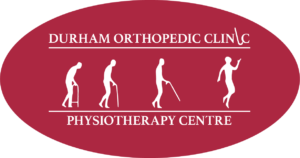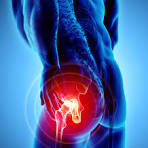Relieving hip pain often involves a combination of self-care strategies, exercises, and lifestyle modifications. However, it’s important to note that if your hip pain is severe, persistent, or accompanied by other concerning symptoms, it’s advisable to consult with a healthcare professional for a proper diagnosis and personalized treatment plan. Here are some general tips that may help alleviate hip pain:
Rest and Avoid Aggravating Activities
Give your hips time to rest, especially if the pain is a result of overuse or injury. Avoid activities that worsen the pain, and consider modifying your daily routine to reduce stress on the hips.
Apply Ice or Heat
For acute pain or inflammation, applying ice to the affected area can help reduce swelling and numb pain. Alternatively, heat therapy can relax tight muscles and improve blood flow for chronic pain. Use a cold or hot pack for 15-20 minutes at a time, allowing your skin to return to its normal temperature between sessions.
Over-the-Counter Pain Medications
Non-prescription pain relievers like ibuprofen or acetaminophen can help manage pain and reduce inflammation. Always follow the recommended dosage, and consult with a healthcare professional if you have any concerns or if you’re on other medications.
Gentle Stretching Exercises
Incorporate gentle hip stretches into your daily routine to improve flexibility and reduce tension. Examples include the butterfly stretch, hip flexor stretch, and seated or standing hip circles. Hold each stretch for about 15-30 seconds and repeat several times.
Strengthening Exercises
Strengthening the muscles around the hip joint can provide support and alleviate pain. Include exercises that target the hip abductors, adductors, and glutes. Squats, lunges, leg lifts, and bridges are examples of exercises that can be beneficial.
Maintain Good Posture
Poor posture can contribute to hip pain. Pay attention to your sitting and standing posture, keeping your spine aligned and avoiding slouching. If you sit for extended periods, take regular breaks to stand and stretch.
Low-Impact Exercise
Engage in low-impact exercises such as swimming, cycling, or walking to maintain cardiovascular fitness without putting excessive strain on your hips. These activities are gentler on the joints while still providing valuable exercise.
Use Supportive Footwear
Ensure that your footwear provides proper support. Good arch support and cushioning can help distribute your body weight more evenly and reduce the impact on your hips.
Physiotherapy
A physiotherapist can create a personalized exercise program to address your specific hip issues. They may also use techniques such as manual therapy, stretching, and strengthening exercises to help alleviate pain and improve mobility.
Remember, it’s essential to listen to your body and progress gradually. If your hip pain persists or worsens, call the professionals at Durham Orthopedic and Sports Injury Clinic at 905-428-7800 and start your road to recovery today.


